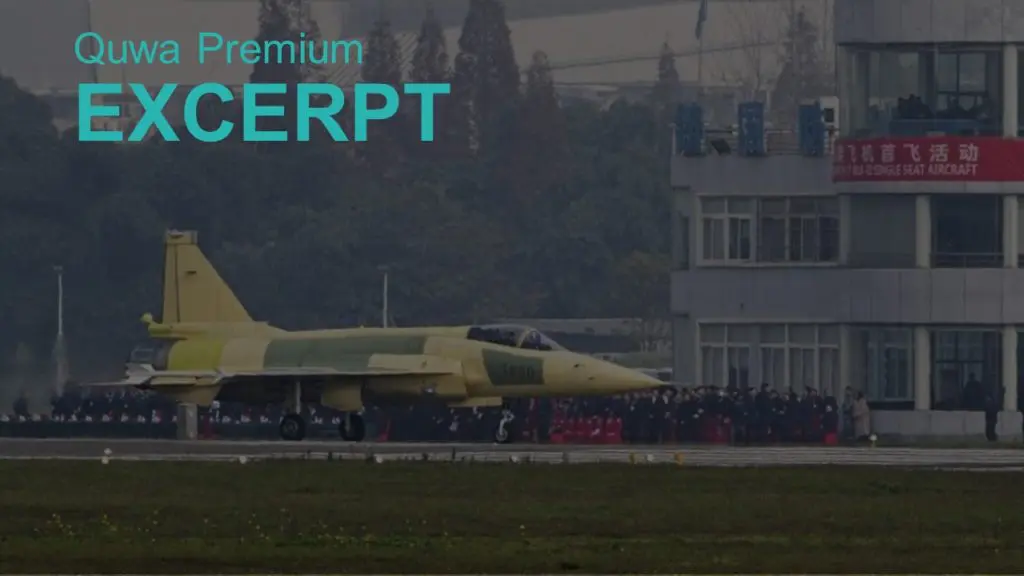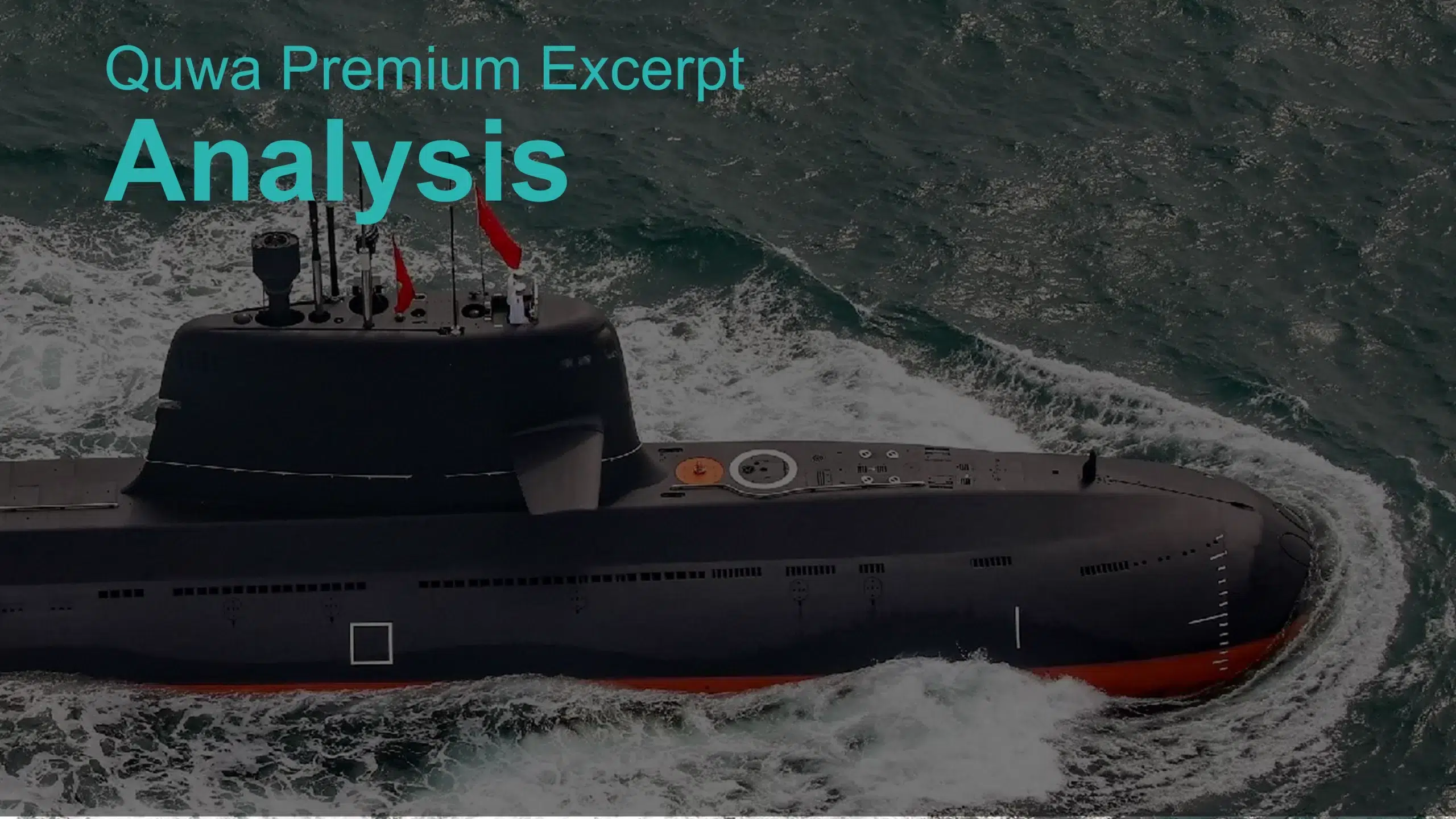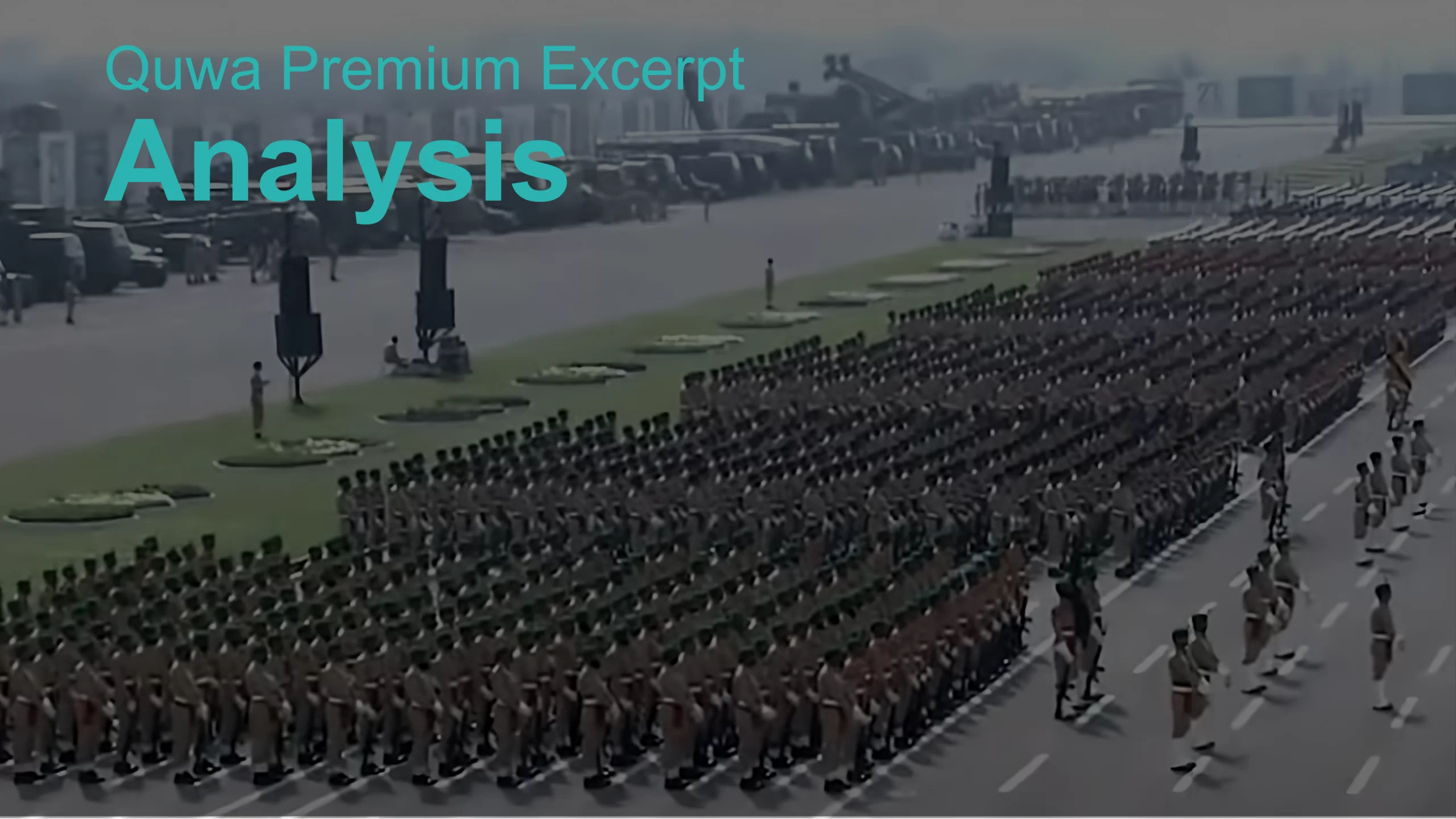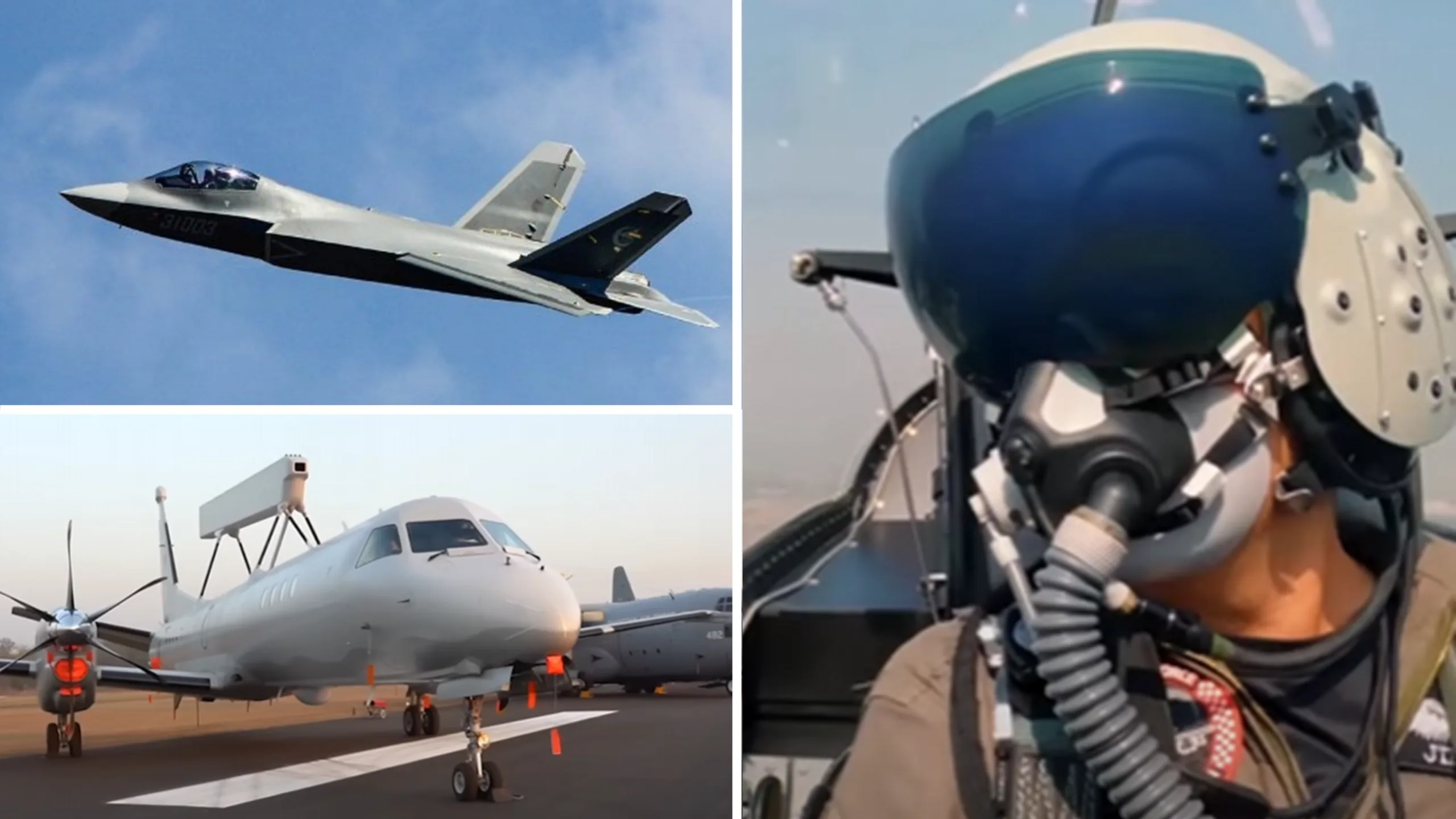According to a recent report by aviation journalist Alan Warnes, the Pakistan Air Force (PAF) selected the KLJ-7A active electronically scanned array (AESA) radar for the JF-17 Block-III.[1] The Block-III is the newest variant of the PAF’s mainstay fighters, of which it operates over 120 aircraft in multiple variants.
Developed by the Nanjing Research Institute of Electronics Technology (NRIET), the KLJ-7A was revealed in 2016 as a potential option for the JF-17. NRIET was competing against the Leihua Electronic Technology Research Institute (LETRI), which was offering its LKF601E air-cooled AESA radar.
Though the KLJ-7A was available in multiple versions, one with a fixed-array, another with a mechanically steered panel, and a form with side-mounted panels.[2] However, Warnes’ noted that the PAF opted for an air-cooled version of the KLJ-7A, potentially indicating the existence of a fourth variant.[3]
In 2016, NRIET reportedly said that the KLJ-7A offers a maximum range of 170 km against a target with a radar cross-section (RCS) of 5m2.[4] NRIET added that the KLJ-7A uses over 1,000 transmit/receive modules (TRM), and is capable of tracking 15 targets and simultaneously engaging four.[5] It also has over 11 modes for operation, including synthetic aperture radar (SAR).[6]
It is unclear how the air-cooled configuration would impact the KLJ-7A’s performance, but the competing LKF601E (also air-cooled) offered near-identical results. So, like the KLJ-7A, the LKF601E offers a range of 170 km for ‘fighter-sized’ targets, with the ability to track 15 of them simultaneously, and engage four at once.[7] However, LETRI did not disclose how many TRMs it is using in the LKF601E.[8]
Thus, an air-cooled variant of the KLJ-7A should at least be as capable of the LKF601E. However, compared to the liquid-cooled version of the KLJ-7A, the air-cooled variant could be lighter in weight, and smaller in size. The benefit of this choice could be that it would be easier to retrofit to earlier JF-17 models.
End of Excerpt (316/1,346 words)
You can read the complete article by logging in (click here) or subscribing to Quwa Premium (click here).
[1] Alan Warnes. “Pakistan Air Force to receive first 12 JF-17B combat aircraft ‘in near future’.” Jane’s Defence Weekly. 04 February 2020. URL: https://www.janes.com/article/94094/pakistan-air-force-to-receive-first-12-jf-17b-combat-aircraft-in-near-future
[2] Greg Waldron. “VIDEO: China intent on AESA radar upgrades.” Flight Global. 07 November 2018. URL: https://www.flightglobal.com/video-china-intent-on-aesa-radar-upgrades/130211.article
[3] Warnes. Jane’s Defence Weekly. February 2020.
[4] Henri Kenhmann. “Airshow China 2016: KLJ-7A, le radar à radar.” East Pendulum. 01 November 2016. URL: http://www.eastpendulum.com/airshow-china-2016-radar-aesa-klj-7a
[5] Ibid.
[6] Ibid.
[7] Henri Kenhmann. “LKF601E, KLJ-7A… Qui sera le prochain radar AESA du JF-17?” East Pendulum. 19 November 2018. URL: http://www.eastpendulum.com/lkf601e-klj-7a-qui-sera-le-prochain-radar-aesa-du-jf-17
[8] Ibid.




